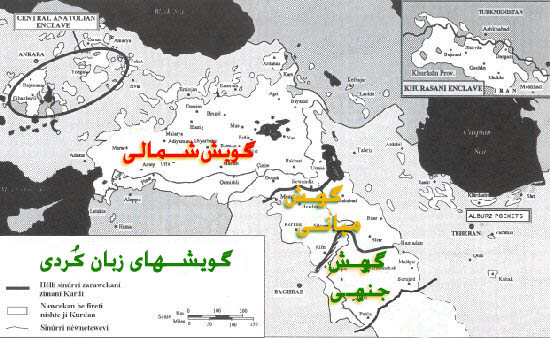Why “ll” for Velar “l” and “rr” for Trill “r” instead of creating one single character for each on like adding diacriticals?
Why “ll” for Velar “l” and “rr” for Trill “r” instead of creating one single character for each on like adding diacriticals?
Why “ll” for Velar “l” and “rr” for Trill “r” instead of creating one single character for each on like adding diacriticals?
KAL has suggested these solutions, which are widely used by Kurds on the WWW, for the first time in the history of Kurdish Orthography based on several characteristics of the Kurdish language. Below is a list of the rational behind such choices:
- Kurdish is a multidialectal language with four scripting system today. The largest dialect Northern Kurdish lacks both velar “l” and trill “r”
- Any diacritical for these two cases means that the character has to be pronounce correctly in the words.
- The basic international standard for www Scripting is ISO-8859-1, which does not support the diacriticals on these characters.
- There are many Kurds still stateless that are widely spread over the world, and who access the Internet through different Operating Systems and Language bases.
- The electronic mail (E-mail) system uses ISO-8859-1 as default, which lacks any diacriticals for velar “l” and trill “r”.
- The Kurdish language still does not have any international accepted scripting code and keyboard layout.
- The majority of Kurds are illiterate in the Kurdish language.
To work around these problems and allow unlimited access to the new age of IT and the Internet, a unified Kurdish scripting system must increase in popularity. The Kurdish unified alphabet contains the most common keys on the International Standard keyboard layout. To create any new single character means the modification of a keyboard layout to allow input of the new character, which can then be used only locally.
Using “ll” for velar “l” and “rr” for trill “r” will help to create correct spelling of the words which can be widely accepted for all dialects, but can be pronounced in a different way locally by respective speakers. This will prevent the Homonyms (words with the same spelling but with different meanings) words and decrease the cases of misunderstanding of Homophones words (Words which sound exactly the same but which have different meanings). By coding the Kurdish script system so that it follows ISO-8859-1, the Kurdish language will become part of the Internationally recognized standard Scripting code worldwide.
It is interesting to know that grammatical regulation for trill “r” in the Spanish language is exactly the same as in Kurdish. Trill “r” in the Spanish language is written and pronounced like in the Kurdish unified scripting system. It never needs to be written as double “rr” at the start of any word since it is for non-initial positions only and all the Kurdish and Spanish words which start with “R” are pronounce as trill “r”.
In the case of velar “l” the grammatical rules say that velar “l” never comes at the start of any Kurdish words so this is for non-initial positions only.



